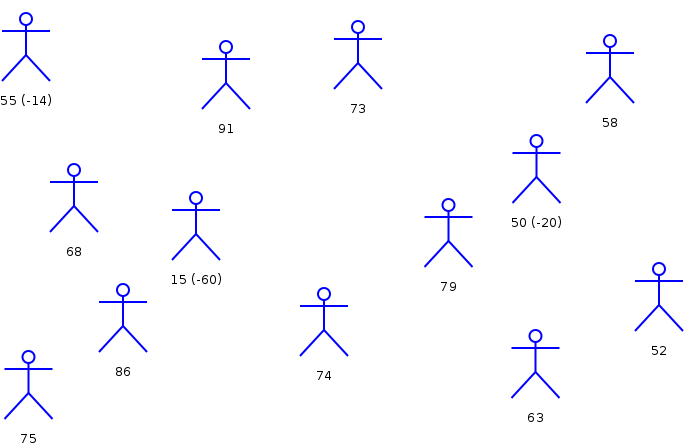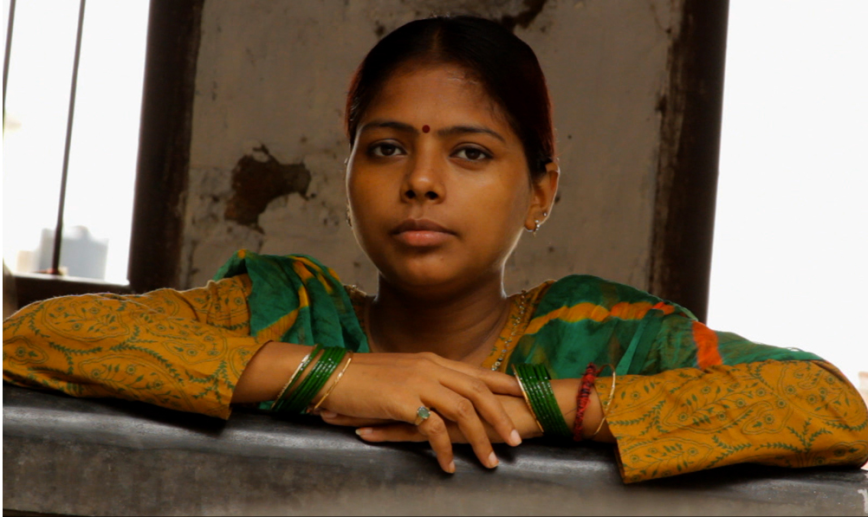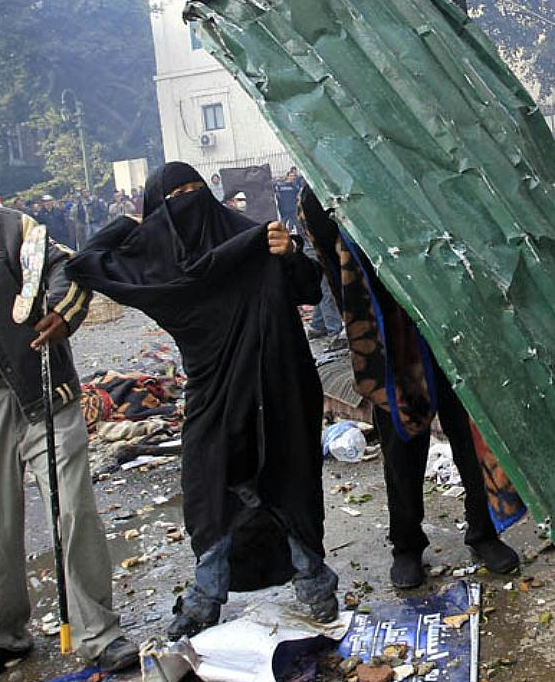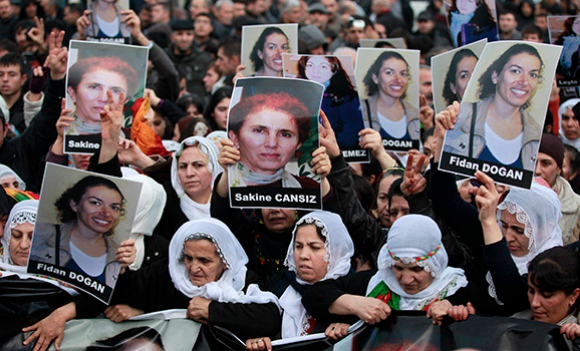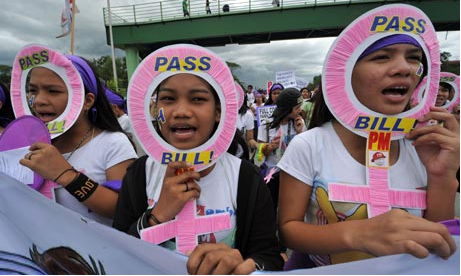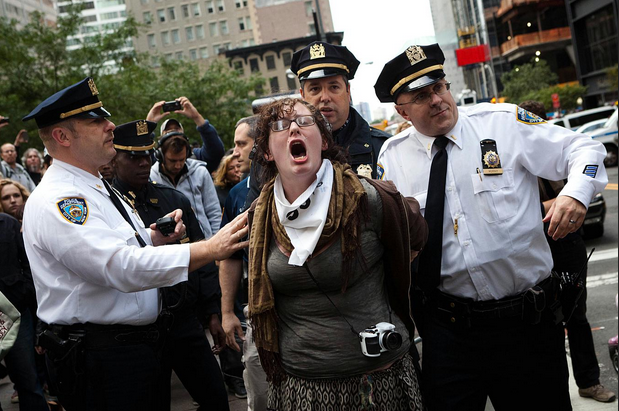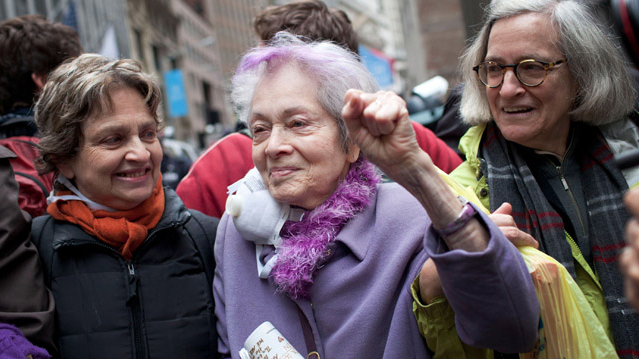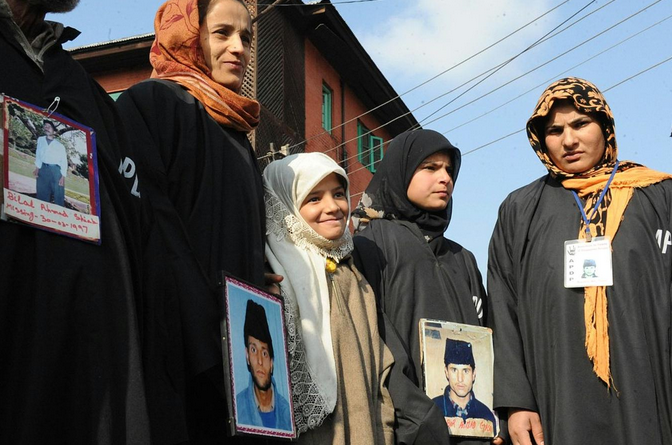This article is part of a series: ‘Stigmergy: Systems of Mass Collaboration’.
What we are taught to think of as ‘the economy’ began as the acquisition and use of goods for the household [Aristotle, Topics, 350 B.C.E.], and expanded to focus on the employment of a small niche group of society who made the accumulation and trading of assets their life’s work. ‘Productive’ labour which adds to the value of materials was recognized, but “The labour of a menial servant … adds to the value of nothing.” [Adam Smith, The Wealth of Nations, 1776] After the Industrial Revolution, Karl Marx popularized the inclusion of labour as a commodity when it was expended for the benefit of capitalists and exchanged for a wage. It was separate from the labour of daily life as “Life for him begins where this activity ceases, at the table, at the tavern, in bed.” [Marx, Wage Labour and Capital, 1847]. Marx pointed out that the exploitation of waged labour was the ultimate source of profit and surplus value in capitalism.
While it was recognized at this point that workers and slaves in capitalist industry were important parts of the economy and were exploited by capitalism, all work done in support of the household and community became invisible. The exploitation of the household and community labourer was the ultimate source of profit and surplus value in waged labour. The exclusion of this labour was perhaps understandable as able bodied, free men were both the backbone of waged labour and the members of the public with political power. According to what Mary Wollstonecraft called “the divine right of husbands” [A Vindication of the Rights of Woman, 1792], women were said to be created for a man’s pleasure and service, his children were his property and women were not persons; their labour was considered rightfully his and their increased labour in his absence not worthy of notice. Marx’s masculinist definition of both labour and capitalist exploitation has continued to define both.
The removal of waged labourers from the household increased both labour and isolation for the unpaid workers at home and entrenched inequality and patriarchy in households. While it was acknowledged that working for capitalists was exploitation, women in traditional roles were doing what they had always done so it was said to be natural to them. Exploitation in a marriage and the worker as a capitalist was not considered. Women were taught to be grateful they were shielded from the exploitation of capitalism when they were unpaid workers at home. Equality activists in the 1970’s fought briefly to have household work paid by western governments as an acknowledgement of its role in supporting capitalism, but the parallel fight for women to be more widely included in the waged working class was far more immediately successful. Political choice in the west now tends to promote free trade capitalism, nationalist capitalism, or capitalist workers. Any support for society is presented as charity, a luxury not part of an economic system.
Removing women from their role as household and community slaves ought to have created a more balanced and enjoyable society but instead it brought far more of the world into the trade economy once occupied by only a small group. As the work in creating and supporting society has rarely been acknowledged and never been valued, we have gross overproduction and gluttony in trade and extreme poverty in service. Some look at the overproduction in trade goods and speak of a post-scarcity economy, where no one will have to work. Work is not scarce, and never will be. There is always an elderly person to visit and support, a child to care for, a garden to tend, art to create, a world to study or a discussion to participate in. There are homes and communities to be created, other people to advocate for, and goods to create for necessity or pleasure. For some, survival is a full time job while others need assistance to survive. The time of leisure those working in trade refer to will never exist for those creating and supporting society.
Some feel that the dysfunction caused by a society given over to trade and support of trade will be remedied by including more women in these careers. These people assume women are inherently more caring, giving people, and if, for instance, women were in the military, killing would be a kinder, gentler pastime. This is absurd, as is proven every time women achieve those positions. Men have also proven constantly that they are just as capable of creating and nurturing a society as women are and prior to the industrial revolution, those were natural roles for them as well. The answer to the dysfunction is not gender balance, but recognition and promotion of the roles that create a rich and rewarding society. Gender balance should be provided by the basic human right to choose one’s life’s work but balance will not change the anti-social nature of a trade economy.
Every society is a continuum of dependencies. With the removal of the labour that was supporting this continuum, dependency became another commodity for exploitation by capitalism. People were taught to disregard the societal debt owed for care received at the beginning of their lives, partly as it was not labour with an acknowledged value. As it was formerly the ‘natural role’ of a wife to provide free labour for a husband, it is still the ‘natural role’ of a parent to provide free care for their children. Adults were now considered dissociated from their origins; the propaganda taught that since they ‘didn’t ask to be born’ they owed nothing to society.
Oddly this lack of obligation for things one didn’t ask for did not extend to aging, sickness or disaster. Now it was incumbent on each labourer to hoard the assets they would need for ‘independence’, a state where they were dissociated from the assistance of society. This ‘independence’ filled lives with fear, uncertainty and doubt and fed massive insurance and charity industries which provide no real service at all. These industries provide an illusion of independence by blocking and allocating access to societal support that has been present all along such as medical care and assistance from society in emergencies. The independence is false, but the dissociation serves to make some feel entitled and others not.
While trade economy is only possible if the rest of society is doing the creation and support work, society can exist quite well without trade. We have conducted society as a trade relationship to an intolerable degree since international trade became widespread until trade now defines every aspect of society. Capitalism has progressed to the point where only a few control the lives of most of the world, an unsustainable imbalance. We can rewind economy based on trade relationships to a point where many will again benefit from it, by debt jubilee, financial collapse or other, or we can create a new post-industrial economy that benefits all members of society and supports the roles society needs.
Decentralized trade economies
Peer-to-peer trading is being increasingly explored as a method to cut out corporate control of the trade economy. Peer to peer trading looks like the diagram above. People can trade directly with each other, or through a network, eliminating the central hubs that control distribution and block access of goods. An alternative distribution is the gift economy which follows a similar diagram but does not involve direct exchange; instead goods are given and it is hoped that equivalent goods will be returned. A common model to discourage freeloading in a gift economy is to require a certain level of contribution from each member.
The peer to peer-to-peer / gift economy structure is encouraged as a form of trade suitable to a non-hierarchical society. That depiction is based on an incorrect picture of the society those trading nodes belong to. The difference between a trade relationship and a society with dependencies is obvious to those dependent or unequal in society. Anyone unable to trade an object or act of direct value to a person in power will be left out of a trade network and dependent on charity as shown in the diagram below. The peer to peer model eliminates the corporate hierarchy but leaves the patriarchy alive and well.
Peer-to-peer and gift economies do not allow for society’s input to be inherent in the trade transactions. The value of goods traded is rarely created solely by the trader. Some production builds on previous work, some makes use of assets from the commons and some is produced at the expense of work left for others. Some products may violate human rights of others or damage the environment or the society. Trade relationships relate only to negotiations between individuals and do not reflect impact on an entire society.
Power in peer to peer and gift economies is retained by those that control assets. Not only does this not benefit all of the people who historically don’t benefit in capitalism, it is easy in the diagram below to see how the cycle will progress right back to where we are today as wealth will again concentrate in those who hoard assets and avoid caring for dependents. Peer to peer trade relationships are simply decentralized capitalism. Bringing that system back to its origins with no change will certainly produce the same result over time which it has produced now.
In the diagram above, the two traders who have pooled their resources and have no dependents are the most powerful. The one with six dependents is working far harder and obliged to divide their assets by seven. The disabled individual all by himself, and the one supporting twelve children and two elderly parents cannot participate in the trade economy at all and are dependent on charity. Their needs are not inherent in a trade economy.
For every member of society who has something of outside value to trade, there are dependents who have nothing and others doing the internal society building work. All trade must benefit those powerful enough to reciprocate. People providing palliative or geriatric care, working with the mentally ill or children, or with criminals not participating in the economy, will have no means of survival except charity or a resurrection of the institutional structures described in Society vs Dissociation. Those whose own survival takes all of their available resources because of illness, disability or age, those investing years in a long term project with no observable output, or those working in research and other thought based fields also have no inherent value in a peer to peer structure and must have their needs tacked on as a charitable addendum or debt obligation.
A few months ago, an article appeared in a Canadian newspaper. It told the story of a very young woman in Uganda raising six children, all the product of rape, after being abducted at 13 to become a child soldier. The photojournalist gave her a camera and sold the photos she took with it. When he gave her the money, he said “This isn’t a handout. This is money you’ve earned.”
Consider that for one minute. Raising six children she did not ask for while still a teenager herself, being pregnant or recovering for six years, breast feeding all of these children for however many years, providing food, shelter, clothing, safety, medical, educational and other care, all 24 hours a day, seven days a week while in extremely dangerous and uncomfortable conditions and recovering from severe trauma, with no societal support and in fact in danger from society, was not worth payment. She is expected to sacrifice her health and risk her life for a job that was not worth payment. Surviving all the trauma of her life did not entitle her to support from society. Trading a picture was considered providing something of value and contributing to society. This is a society conducted as a trade relationship; she cannot sell her children, therefore her work for them is of no value. It would however be illegal for her to let them die, so she is legally slave labour. Slavery of caregivers and others in this and many other instances is the only reason societies under capitalism can survive.
There are many groups today advocating living a money free existence by using barter, scavenging, peer-to-peer trade and gift economies. Women have been living a money free existence for most of history. Women devote a year of their lives to each pregnancy and recovery period and still do by far the most society building and caregiving work worldwide; in trade economies they have to add additional labour on top of this to create some product of exchange that will appeal to a person in power or they and all of their dependents will be at the mercy of those in power. The peer-to-peer barter or ‘gift’ economy required for many to survive has been called the world’s oldest profession: prostitution in an endless variety of forms, many called marriage. Trade economies are rigged against women in traditional roles and anyone else creating or supporting society. The answer for equality in this system has been for everyone to reject support roles and embrace trade economies.
Peer-to-peer networks provide no improvement for the rights of the weak as shown by a history full of peer-to-peer extortion gangs, paedophile networks and brotherly revolutions which became tyrannical immediately upon seizing power. Peer-to-peer is a survival of the fittest structure which ensures slavery of the weak. The persecution of the weak found in societies without inherent protection is frequently followed by a guardian coup d’état as when women are legally barred from bending over in Swaziland, sitting astride motorbikes in Indonesia or owning cell phones in rural India for their own ‘protection’. In a society with a trade based economy, currency and centralized power offers more protection to the weak than a peer-to-peer structure. This has been seen by the improvement in women’s lives when they have the right to vote and work for pay, and protection is provided (however theoretically) by the state.
When asked how they would allow for dependencies, advocates of peer to peer or gift economies speak of being ‘generous’, ‘giving’ food to the less able, and nearly always also mention condemnation for anyone having more children than they can provide for themselves, addictions, etc. In fact even one child puts the pregnant, nursing and responsible parent at a huge disadvantage and causes them to have to work far harder, for far less, and then need to divide their earnings. A number of dependents like six or more makes it difficult to survive. Many people around the world have far more than six children as well as care for other dependents in society. Even if the birth rate were reduced, every state in the northern hemisphere is experiencing an explosion in the elderly population, and disasters, environmental harm and other factors can cause sudden huge increases in dependents.
The decentralized capitalist structures treat this ‘problem’, in very much the same way as their corporate capitalist predecessors, with a begrudging charity or more hostile superiority and blame for those disadvantaged by their system. The value attached to trade versus creation and support of society is evident in every part of life, from obnoxious business travellers and others treating child caregivers as an untouchable caste to the removal of the elderly and less able to a dependent, burdensome role instead of recognizing the contributions and effort they are still providing or could. The nostalgia for a time before rampant corporate capitalism took hold, when ‘everyone’ benefited from peer-to-peer trade is an entirely masculinist view with a very narrow definition of ‘everyone’. As the male role in society has expanded to include far more caregiving, a trade economy suits no one.
Exploitation of dependents as a commodity
In a world where everything is bought and sold, the weak become the product.
The elderly are taught to live in fear of outliving their rights to care or even a home and food, and the pressure to hoard everything for the time when they can no longer work hangs over the lives of every worker. Since no one can know when they will become ill, when they will die, or what the vagaries of the financial system will bring, this stress colours the lives of everyone in society and makes generosity with any current surplus unlikely.
Insurance corporations which provide nothing of real value to society have sprung up for every eventuality and advertise potential calamity incessantly. The fearful society then buys insurance instead of using their surplus to help others experiencing a current disaster. Sometimes this protection racket is mandated by law, and it is impossible to drive a car, mortgage a house or other activities without paying an insurance company selling fear.
Sickness is controlled not only by the insurance companies but by the health industry which controls choice. The wealthy can afford real health solutions in the form of healthy lifestyles and expensive testing, counseling, therapy and remedies. The poor are either denied health care or fed the most harmful and invasive quick-fix pharmaceuticals and procedures with little to no after care or general wellness assistance. Poor health is an individual responsibility despite frequently or usually being caused by societal pollution, poor nutritional options, unsafe environments, etc.
Caregivers are threatened with no hope for their child’s future if they are not provided with an endless array of products and services tiered by income to determine future status in society. The education caregivers are convinced is necessary for a child to succeed is only necessary to perpetuate the trade economy. The poor are streamed to schools which teach the futility of resistance and the reality that elite options will never be available to them. The wealthy are taught to excel in arts, athletics and academics to no purpose except to appear accomplished in the manner of the old aristocracy. Character and how to benefit the society they are born into, the topics which may be expected to be the only necessary topics for a state education, are almost never taught.
Young adults are persuaded they must mortgage their futures before beginning them by entering overwhelming debt agreements for education which benefits the trade economy. Jobs in labour are frequently sold in the same manner. Governments or agents charge fees for emigrating labour which ensures they will be enslaved by the purchased job for years. This ensures workers can never leave the trade economy as they are indentured for years, captured first by paying for the privilege of working, second by fears for retirement.
However reasonable a legal system may seem, lawyers and an arbitrary system of judicial discretion ensure that the laws work against the poor. It does not matter if the law is on the side of the poor if a rich opponent drags the process out for years and bankrupts them, or ensures they cannot keep up with the legal process or they do not have the expertise or time to fight. Civil courts have succeeded for years in destroying the lives of those the law should have protected by protracted lawsuits and exorbitant fees; now many countries are seeing pre-trial detentions abused in the same manner and prisoners denied their rights to a speedy trial.
Once in prison, people become part of a huge predatory industry. Taxes pay private or state owned corporations set up to warehouse prisoners not rehabilitate them. Many prisons worldwide have the added feature of penal labour where prisoners are paid far below minimum wage and their services sold to other corporations at a great discount. Taxpayers pay to feed and house people who are forced to work as slaves for corporations. There is no incentive in a trade economy to not build and fill as many prisons as possible.
Disasters which require voluntary assistance are preyed upon by NGO’s who build powerful empires by standing between those in need and the society willing to help them. ‘Rebuilding’ efforts are typically an opportunity for multinational corporations to come in and exploit the disaster site with offers of ‘creating jobs’. Disaster NGO’s use money provided by people around the world to support huge industries of developers, security, and disaster relief.
Political unrest supports the global war industry. Once a peace agreement generally meant disarmament. Now when ‘peace’ finally arrives to a region, after extended media advertisements of all the war equipment being used, extensive new mass killing equipment is purchased to ‘ensure peace’. The end of a war, like every other disaster, is a signal for the ‘rebuilding’ efforts of NGO empires and exploitative multi-nationals.
Wide spread and growing human trafficking is a product of a society built on trade relationships. Preying particularly on the weakest members of society, human traffickers also frequent disaster areas looking for those who will not be easily traced. People are captured and sold for paedophiles, prostitution, slavery, military and even ritual killings where their body parts are said to bring wealth and power to the purchaser.
The poor are exploited by capitalism through uncountable fees, fines, and price gouging. When they receive money it is subject to a vast array of charges from the financial industry, for cashing cheques, fines for missed payments, interest on debt, and a wide assortment of tiered services such as credit cards which are impossibly expensive for the poor but provide benefits to the rich. Stores will raise the prices of essentials on days when benefits are paid to ensure the poor pay more. In many cases poor people are expected to ‘volunteer’ in exchange for food or lodging in yet another form of modern slavery. Frequently the lifestyle forced by poverty leaves no legal choices and forces them into the prison system.
In a trade economy, dependency is a product to be exploited and sold to society for maximum profit.
Approval economy
To benefit all of society, an economy needs to be based on service to all of society. In today’s economy, service is bought and sold as a good; instead goods must be provided as a service. An economy benefitting all of society should include service to ourselves, service to others and service to society at large. An elderly person who keeps themselves healthy and fulfilled or an addict working to conquer their addiction may be giving only to themselves but both are making society a much better place and lessening the work for others. To create a giving economy instead of a gift economy, currency is not exchanged between two trading partners but societal approval is awarded from all of society to the giver. Societal approval and trust then entitles each member of a society to receive benefit from that society, through a living and immediate social contract. As a reputation economy allows you to participate in trade, an approval economy allows you to become part of a society.
Trade economies attempt to symbolically represent societal approval by possessions. As monarchs were formerly held to rule by divine right, trade economies insist wealth is due to virtue. While hoarded possessions have been used as a symbol of acceptance, they do not fulfill the real social need for acceptance. The wealthy are instead resented and isolated, shunned by the society they supposedly are the elite members of. Underlying every patriarchal society is the idea that caregivers, children and dependents should be grateful as trade economies see them as burdensome. Those who see a disparity in labour for the family and community are not at all grateful. Family wage earners resent not gaining love and approval for their work in trade, but because trade economy derides unpaid service, they receive no respect for support and creation of the family either. In a trade economy, the currency exchanged separates the giver and receiver; because the currency entitles the receiver to the gift they are not grateful. The human need for social and familial approval is almost never adequately met in trade economies.
As possessions in a trade economy include the service of others, those who do not work for the benefit of others are the powerful. An economy based on societal approval equates not working for others with being excluded or shunned. In an approval based economy, control of assets does not bring power. Assets are not assigned worth until they are contributed to the society. Internal support contributions are not valued less than external trade contributions.
Work in an approval based economy provides society and affinity groups; it is less stressful to be part of the society than to be isolated. Gifts are bonding, both within family and friends and at a community level. In an approval economy gifts are not a tax or state confiscation which leaves nothing; wealth is created by giving. Acceptance by society is based on actions instead of assets. Those dependent in society for some things also have gifts to give, acceptance and approval being the most valuable. Politicians propped up by military and corporate interests hated by the people are the antithesis of societal approval as the mark of acceptance. The dissociation of power in society from service to society provides fertile ground for sociopaths to seize power.
Those creating and supporting society should not need charity, they should have power. An inclusive society does not leave some dependent on the charity of others, or make some work far harder for the same ends. Where there is inequality there will always be tyrants; giving birth, aging or accepting responsibility for another should not be equivalent to accepting a slave role. ‘Women’s issues’, the elderly, the youth and the less able cannot be special problems to be dealt with on the fringes of society. Care for dependents of society is the responsibility of all, and dependents should have power to gift approval to those who assist them. Economy cannot be rigged to favour one special interest group. The solutions for all of society must be inherent within the economic system.
In an approval economy, effort to benefit society is recognized and acts against society are penalized. Approval is related to assessment of fairness, not the value of the gift. The work of an elderly person talking to a child, a scientist conducting research, a maker providing goods, a child learning and a mentally less able person gardening have no value differences, though the effort expended might. In the chart above, the person with a score of 91 has decided to be a pillar of their society. They probably belong to few other societies, and devote formidable energy to providing for this one, belonging to many working and discussion groups and making themselves available and responsible for the wellbeing of others. The people scored 58 and 52 may be just visiting or may belong to many networks or perhaps they prefer to spend their days on the beach, doing only the basic amount necessary for good standing. They may be entitled to basic essentials like food and lodging but not community resources such as cars and maker labs without additional barter. 55 and 50 expend effort, but also cause harm. Perhaps they are struggling with addiction or mental illness, Their effort is recognized by continued support but at basic levels to restrict their ability to harm others. The person scored at 15 is probably completely shunned by the society, perhaps even imprisoned.
An approval economy is the economy people rely on when they do not use direct coercion, the one typically seen in families and unfunded cooperative and volunteer groups. What the approval ratings mean in terms of benefits earned and whether there are formal values at all varies by society. Being part of a society may require more effort at some times than at others. For instance, not assisting to put out a fire or provide emergency aid to another may be considered an act against society rather than simply a failure to contribute. The benefits of belonging to a society will dictate how motivated people are to contribute to it.
Acceptance and shunning
Acts which cost society should reduce the standing of the destroyer and their access to benefits. Theft reduces the thief’s approval which is their wealth. Acts of aggression against society is reflected back to harm the aggressor’s standing and remove power and privilege. Extreme aggression in violation of the social contract results in shunning, or removal from the benefits of society. Law enforcement (shunning) is inherent in a system of trust networks. In dissociated trade economies, criminals are allowed to fully participate in society until a point when they are completely removed from society. Societal approval and rehabilitation have nothing to do with punishment in a trade economy. Far from being shunned, many criminals are media celebrities.
Acceptance or reintegration into society in an approval economy is a product of subsequent good behaviour and effort expended to increase approval. A person who has lost their good standing would be forced into a trade economy relationship to receive any benefits and have to ‘pay up front’ rather than have the rights of a member of society. Shunning would ensure that laws were true reflections of popular opinion, though shunning must never be used to remove the rights in a social contract by mob rule.
Societies can join in expanded networks which may agree to trust individual reputations across the network. These networks can also agree to shun other societies they do not approve of or assist those they do. Those societies that do not join expanded networks do not receive the benefits of them. People that have good standing across multiple networks can increase their standing in each by providing referrals and knowledge or some networks might agree to blend rankings to create an overall reputation. In this way people who do not work locally can still access the essentials they need locally. An expanded network would also provide an avenue of appeal if a person felt their local society was shunning them unjustly or they were having their basic human rights violated.
The trust networks and reputations which make up an approval economy are part of the daily life of all societies already. The people you invite to eat a dinner you have provided are typically people who have earned your trust and approval. They will usually provide similar benefits to you if they are able, and if they consistently do not they may begin to receive less invitations. We care for grandparents who are unable to reciprocate because we recognize ourselves as part of a continuum of family obligation which cared for us when we were young and will hopefully do so again when we are old. When we ask the identity of an absent group member, their reputation and approval rating is frequently implied in the answer, and sometimes we ask for referrals outright. Even as anonymous participants on some internet sites our input is ranked and voted up and down, contributing to our reputation. Sometimes our internet reputation is already used to introduce us to wider societies providing basic needs, such as couchsurfing.
Approval economies are the natural economies of human society. We separated power from societal approval and exchanged society for trade relationships so long ago most cannot imagine an alternative, but it is still there in the most basic units of society. Economies based on trade relationships with financial systems as tools of coercion and control cannot coexist with peaceful and just societies. Power will be concentrated in able bodied traders and hoarders as long as we continue using trade economies.


